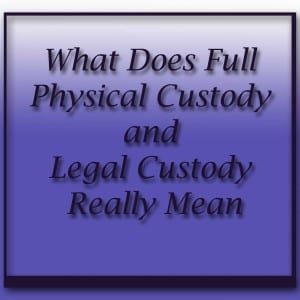The exact meaning of the term “custody” is often misunderstood, many times in a way that is really detrimental to parents and their children.
In Oregon, the term Custody refers to the legal authority to make decisions for the child.
The “custodial parent” can perhaps best be called the “executive” parent, as they get to make almost any decisions that impact the child without having to worry about the other parent’s opinion.
Court orders can limit a parent’s authority if the specifically lay out restrictions, but generally speaking a court order will simply designate one of the two parents as the custodial parent and say nothing else. the parents are then stuck trying to understand precisely what that means.
There is some ambiguity in exactly where the line is drawn between a custodial decision and a non-custodial decision, but here are a few of the clear examples.
The custodial parent gets to decide all non-emergency medical decisions, who the child’s primary caregiver is, what the child’s primary religion will be, and what school the child will attend. The custodial parent also has the authority to obtain a passport for the minor child (there are many rules about obtaining a passport for a child under the age of 16, but my only point here is the custodial parent does not need the approval of non-custodial parent to get the minor child a passport).
Some of the clear areas where the custodial parent does not have full control are things like emergency medical decisions while the child is in the other parent’s care, or how the other parent chooses to parent the child (like who they let them spend time with, or how much television they let them watch).
The tough problems arise when you get into the muddy area and this is often when a family law attorney may be contacted to get questions answered. For instance, while the custodial parent gets to decide what extra-curricular activities the child engages in, it is a bit unclear whether the non-custodial parent can enroll the child in an activity that only occurs on their own parenting time. Many people would agree that the non-custodial parent can do things like take the child to a music lesson on their own parenting time, but not everyone, and more importantly not every judge, agrees on this point. Other iffy things include whether the non-custodial parent can get the child a haircut. What about if the child has some special dietary needs, does the non-custodial parent have to follow those restrictions if they are not immediately harmful to the child?
There are countless other examples of things that many people who are going through a custody case might not think about, so it is always better to hire an experienced lawyer who can try and foresee some of these complications for you, and include specific rules in the court order about where the custodial authority in your particular case will begin and end.
For more on custody issues we have other articles that may interest you including one about summer parenting plans and school year parenting plans. We have also answered the top 5 most asked Oregon custody questions.

